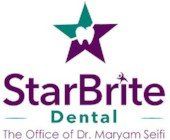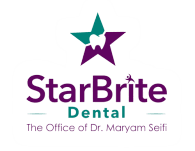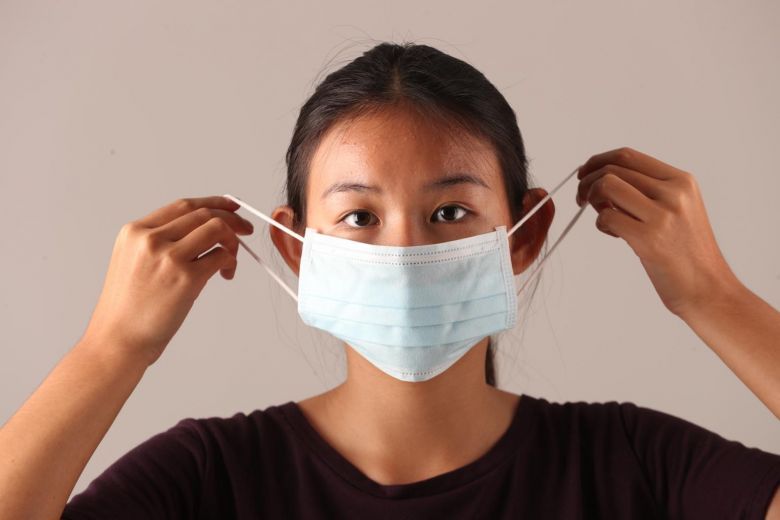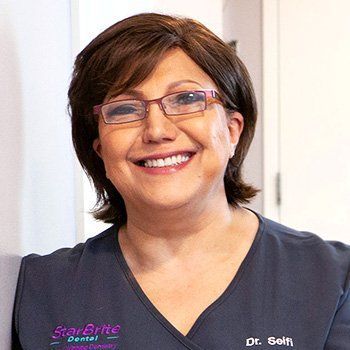20 Things You Should Know About Your Oral Health and the Coronavirus
The more we learn about COVID-19 (corona-virus disease 2019), the more effective we will be in flattening the curve of new cases. That’s why it’s critical to understand the link between your oral health and overall physical health. In this way, you can more effectively safeguard yourself and your family against COVID-19. Here are 20 thing you should know:
1. Toothbrush-Sharing Can Be Hazardous to Your Health: The coronavirus along with other viruses, bacteria and harmful microorganisms are contained in saliva. When you share a toothbrush, you are introducing another person’s saliva into your body through the mouth. These germs can spread to your nose, throat and lungs resulting in colds, flus, cold sores, strep, hepatitis C and more. (Note: The AIDS virus is not transmitted through saliva.) Even if you are following all other sanitary guidelines during the COVID19 pandemic, if you are sharing a toothbrush with another in your household, you are making yourself vulnerable to infection. And if your immune system is compromised, it’s even riskier. Always use your own toothbrush
2. How to Keep Your Toothbrush Safe:
To clean your toothbrush after brushing, thoroughly rinse it until it is free of any particles. It may seem logical to soak your toothbrush in a disinfecting mouthwash or solution, but this is not advisable. The reason is, under certain conditions, soaking your toothbrush could actually spread germs rather than kill them. And there is no need to run your toothbrush through a dishwasher, put it in a microwave or use an ultraviolet device. Doing so could damage the toothbrush. Just rinse the toothbrush thoroughly and let it air-dry in an upright position. Don’t store your toothbrush in a case or cover it as that would encourage bacterial growth. If you are storing your toothbrush with others in a holder, avoid letting the brushes touch each other.
3. Toothbrushing Best Practices to Protect Your Health: Adhering to best practices for toothbrushing will further help to protect your health against viruses and illness. For starters, wash your hands for 20 seconds before brushing or flossing; this prevents spreading germs to your toothbrush and mouth. Since bacteria enters the air as you brush, practice social distancing while brushing by standing six feet from others. If you use an electric toothbrush or an oral irrigating product like a WaterPik, wipe the handles with a disinfectant before using. Disinfectants which guard against the coronavirus can be found online. Alternately, you could cover the handle before using a with clear plastic bags like a sandwich bag and discard it after use.
4. In Case of a Dental Emergency During COVID-19: To limit potential exposure to others with COVID-19, dentists are rescheduling elective care such as routine checkups and oral hygiene appointments. A dental emergency, however, needs immediate attention as it puts the patient at risk. Such emergencies include oral infections which cause swelling and severe pain or a knocked-out tooth. If you suffer a sudden dental emergency, contact your dentist immediately rather than visit an urgent care center or hospital ER. The American Dental Association has asked dental offices to stay open to treat such cases rather than have them seek care from our already-strained healthcare system. Your dentist will advise you on what to do next.
5. Oral Health and Overall Health Go Hand-in-Hand: To protect and preserve your overall health particularly during the COVID-19 pandemic, it’s vital to have good oral health. That’s because your mouth is a portal to your body. A bacterial infection, if left untreated, can spread to other portions of the body and cause systemic illness. Gum disease, for example, has been linked to an increased incidence of heart disease and stroke. Conversely, systemic disease, such as a blood disorder, can manifest in gums which are pale and bleed. Various factors can reduce the risk of oral disease including proper oral hygiene, regular dental checkups, a diet rich in nutrients and other lifestyle improvements.
6. Poor Oral Health Compromises the Immune System: An experiment by a British dentist illustrated the impact of oral health on the immune system. In this experiment, the dentist brushed only half of his teeth for two weeks. After the two-week period, the gums around the teeth which hadn’t been brushed had developed a mild infection. The mild infection created inflammation in the doctor’s entire body. Had it been left untreated, the chronic inflammation could have ultimately compromised the immune system, weakened the body’s defenses against illness and increased the risk of disease including type 2 diabetes and Alzheimer’s. If you’re experiencing signs of oral infection, such as swelling or pain, call your dentist immediately for assistance.
7. Oral Health in Seniors: Why They Require Extra Care: Senior citizens, those individuals 65 and older (according to Medicare), are more prone to oral health issues. Dry mouth, for instance, caused by medications, certain diseases or cancer treatment, reduces the flow of bacteria-fighting saliva leaving the senior more vulnerable to illness. Dentures that do not fit correctly can lead to inflammation while gum recession exposes enamel-less tooth roots and increases the risk of tooth decay. Arthritic hands or fingers could make proper and thorough tooth-brushing more difficult. Seniors are advised to brush twice-daily with a fluoride toothpaste and rinse with an antibacterial mouthwash one to two times per day. If you experience a dental emergency such as severe pain, swelling or inflammation, call your dentist immediately for assistance.
8. Why Moms Say “Eat Your Vegetables”: If your mom told you to eat your veggies, she had good reason: vegetables contain nutrients essential to excellent oral and overall health. Root vegetables, for instance, help your body create vitamin A which it needs for strong teeth. And chewing raw carrots, celery and other root vegetables gives the gums healthy stimulation and also prompts the production of saliva which cleanses the mouth. Leafy greens, such as spinach, chard and lettuce, provide essential vitamins and minerals which promotes good oral health. If you want better dental health and overall well-being, eat your veggies.
9. Have Kids Who Vape? It’s Just as Bad for Their Teeth as Smoking: Vaping is on the rise among teens. A 2018 survey of over 44,000 students revealed that more than one-third of 12th-grade students vaped, up nearly 10% from the previous year. Although e-cigarettes omit tobacco, they still contain nicotine in a vapor riddled with toxic particles. Besides systemic damage, the nicotine in vaping impairs the flow of blood, and therefore nutrients, to the teeth and gums. This causes gum recession which increases the risk of cavities and tooth loss. Nicotine also reduces the amount of bacteria-fighting saliva in the mouth which leads to tooth decay. And, nicotine appears to increase the risk of gum disease. If your kids vape, you’ve probably already tried to get them to stop. We urge you to try again. It’s the last thing they need during the coronavirus pandemic.
10. 5 Ways to Protect Your Child’s Oral Heath: No doubt you are doing all you can to keep your family safe during the COVID-19 pandemic. Here are five tips to help you protect your child’s oral health: (1) Be sure your child maintains regular oral hygiene by brushing and flossing daily. With your help, children should start flossing as soon as their teeth start moving close together. (2) Watch their diet and restrict their sugar intake to prevent cavities. (3) For children who suck their thumbs, this could be from stress. Talk to them to see if they have concerns. (4) Teeth-grinding during sleep can also be a sign of stress. Try simple relaxation techniques like reading to your child before sleep. (5) If your child has a dental emergency, such as swelling or pain, call your dentist immediately for assistance.
11. Foods to Safeguard Your Oral Health: Amid safety concerns about the coronavirus pandemic, another step one can take to protect their heath is protecting the health of their teeth and gums. In addition to proper at-home oral hygiene, such as daily brushing and flossing, good nutrition goes a long way to achieving good oral health. Eating foods that are rich in calcium, for example, helps build strong teeth and bones. You’ll find calcium in foods such as dairy products, green leafy vegetables and almonds. The mineral phosphorous, which can be found in lean meats, dairy, eggs and other foods, also strengthens teeth. And vitamin C, which benefits gum health, is available in citrus fruit, spinach, broccoli, peppers, potatoes and other foods. Eat well and stay safe!
12. Brushing Your Teeth the Right Way: You may not realize it, but there’s a bit more to toothbrushing than meets the eye. Why does it matter? Because brushing correctly reduces the harmful bacteria in your mouth which protects your health. And brushing the right way begins with picking the right brush. To get under the gumline, you need soft bristles because they bend; hard bristles are too stiff. There’s no need to scrub; gently brushing will clear away the plaque without traumatizing the gums. And don’t move the brush back and forth from side to side—instead, start at the gum and go up and down in a circular motion. Be sure to include the gumline by holding the brush at a 45-degree angle at the gumline. Most of all, brush at least two minutes twice a day. Brushing for two minutes or longer clears away more bacteria-ridden plaque.
13. Vitamin C Fights Infections and Protects Against Gum Disease: Vitamin C is an essential nutrient for maintaining good health, particularly during a global pandemic like COVID-19. A series of medical studies conducted on animals concluded Vitamin C “plays a role in preventing, shortening and alleviating diverse infections” with similar effects on humans. For instance, in controlled studies, vitamin C alleviated and shortened the length of the common cold on human beings and had “significant effects against pneumonia” which is a dangerous complication of COVID-19. As regards oral health,Vitamin C supports gum health, protects against gum disease and prevents teeth from loosening. Foods rich in Vitamin C include oranges, lemons, other citrus fruit and leafy greens. If you are interested in taking Vitamin C supplements, consult your healthcare provider first.
14. Oral Health Tips for Diabetics: Unfortunately for diabetes sufferers, they are more inclined than others to develop oral infections and gum disease due to an excess of glucose (sugar) in their blood. Diabetics also experience more severe infections than patients without periodontal disease. These people need to be especially careful during the COVID-19 pandemic. If you have diabetes, here are some tips for safeguarding your oral health. First, keep blood sugar levels as close to your goal as possible. Next, follow your doctor’s recommended diet. As for oral hygiene, brush your teeth in the morning upon awakening, right before bed, after all meals and after all snacks containing sugar or starch. Daily flossing will further help reduce harmful plaque which can lead to infection. Be sure to tell your dentist about your medical condition and history and follow all of his or her recommendations. If oral problems develop, call your dentist right away for direction.
15. Warning Signs of Serious Dental Infections: Even in the best of times, a dental infection, left untreated, can be potentially life-threatening. During the COVID-19 pandemic, a dental infection should be treated immediately. The warning signs of a dental infection include a throbbing pain in a tooth or jaw, neck or ear; facial swelling, sensitivity to oral pressures, bad breath and fever. Warning signs that a dental infection is spreading to the rest of the body include headache, swelling that impairs swallowing or breathing, dark urine, rapid pulse, chills, diarrhea and vomiting. See your dentist if you have a fever, swelling, difficulty swallowing, severe tooth pain or red gums. Seek immediate medical help if you have chest pains, confusion, seizures or convulsions, ongoing vomiting, painful urination or a high fever.
16. Sensitive Teeth? When to See a Dentist: As Americans navigate their way through the COVID-19 pandemic, they need to be especially diligent about protecting their health, including their oral health. If you have relatively sensitive teeth, the cause could be as simple as the foods you eat. Some 40 million Americans experience tooth sensitivity when eating or drinking certain types of food or beverages, including soda, hot coffee and tomatoes. But if you suddenly have increased sensitivity in your teeth or in one specific tooth, this could be a sign of serious infection. For instance, you may have an undetected cracked tooth which allows bacteria into the tooth and could lead to infection. Left untreated, the crack could get worse along with the infection. Dental offices are open during the COVID-19 outbreak to handle dental emergencies. Call your dentist immediately when experiencing unusually high tooth sensitivity or pain.
17. Why Dental Offices Are Open During the COVID-19 Pandemic: At last count, 95% of Americans have been told to stay home to contain the COVID-19 pandemic. Nonessential businesses have also been closed. Why, then, are some dental offices open? Although the American Dental Association (ADA) has asked dentists to reschedule patients for routine elective services, the ADA has also asked dentists to provide emergency careto divert dental patients from overburdened hospital emergency rooms. That means anyone with a dental emergency can immediately call their dentist to address oral swelling, nonstop bleeding, a broken tooth, a knocked-out tooth, tooth or jaw pain, painful or swollen gums, stitches removal or replacement and adjusting dentures for cancer patients undergoing treatment.
18. Bad Breath: Why You Should See Your Dentist: Bad breath can be more than an embarrassment, it can also be a symptom of disease. People with underlying health conditions are particularly at risk during the COVID-19 pandemic. For that reason, it’s important to take bad breath seriously. Some of the causes of bad breath include food, tobacco use, inadequate oral hygiene habits, medications and dry mouth. On the more serious side, bad breath can also be caused by chronic nose, sinus or throat infections and serious diseases including cancer or a metabolic dysfunction. If are you suffering from bad breath, try brushing your teeth after eating and include your tongue. Also use dental floss and drink plenty of water. If the bad breath continues, call your dentist for an evaluation. Dental offices are operating during the COVID-19 pandemic.
19. What to Do If Your Child Has a Dental Emergency: If your child has a dental emergency, don’t panic—dental offices are providing emergency treatment during the COVID-19 pandemic. Call your dentist as soon as emergency strikes and apply these tips to assist your child until their dental appointment: (1) For a knocked-out tooth unaccompanied by serious injury, store the tooth in milk to bring with you to the dentist. He or she may be able to re-implant the tooth in its socket. (2) If your child cracks a tooth, have them rinse their mouth with warm water; keep swelling down with cold compresses on the face. (3) For tooth pain, try having your child rinse with warm water and use floss to dislodge any food. If pain persists, call the dentist. Dental emergencies left untreated can lead to infection or could be a sign of infection. That’s why it’s important to address them immediately.
20. Reduce the Risk of Gum and Heart Disease with Exercise During COVID-19: We all know the virtues of exercises for maintaining good health. Now healthcare professionals are recommending exercise for good oral health as well. The American Academy of Periodontology (the branch of dentistry concerning gums) reports that people who are at a healthy weight and very physically fit have a lower occurrence of severe gum disease. Gum disease, i.e., chronic inflammation of the gums and bone around the teeth, causes tooth loss, and is linked to serious health conditions such as heart disease, diabetes and others. Therefore, reducing the risk of gum disease reduces the risk of developing serious illnesses related to gum disease. Talk to your healthcare provider for recommendations on indoor exercises to be done during the COVID-19 lockdown.
In addition to caring for your oral health, keep yourself informed on and follow all CDC recommendationsand direction from your government officials. Stay safe!



